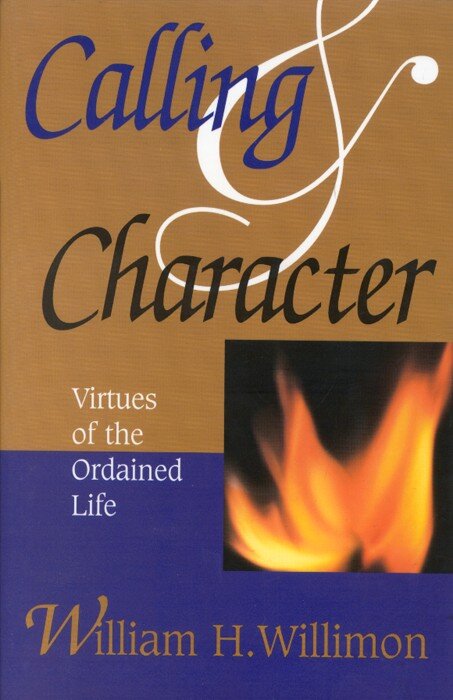William H. Willimon, Calling and Character: Virtues of the Ordained Life. Abingdon Press, 2000.
Reference in: Ministry Ethics
LifeandLeadership.com Summary
This is by the same author as the modern classic, Pastor: The Theology and Practice of Ordained Ministry. Chapter 12 of that book, “The Pastor as Character: Clergy Ethics” (pp. 299-314) is in some ways an abridged version of many of the same themes as Calling and Character.
Willimon’s clear emphasis throughout is on the character of pastors. He shares this emphasis with most books on ministerial ethics, including Trull and Carter, Ministerial Ethics. He says:
“This book is concerned not with a method of ethical deliberation for pastors, not with the solution of various ethical quandaries of clergy, but rather with the basic question, What ought clergy be? And then by implication, What ought clergy to do? It is the character of clergy that is our main concern. …Clergy, like all baptized Christians, are expected to witness to the death and resurrection of Jesus by the way that we live. In this sense, when it comes to Christian ethical dilemmas, clergy are not special. However, from among the baptized, the church has found it helpful to call some to lead the church, to care for congregations, to preach the Word and administer the sacraments, to worry about what makes the church, church, in a way that is helpful to all members of the body of Christ as they live out their vocations. Christians so designated — ordained, placed under orders by the church — are called pastors, priests, or clergy.” (11)
Willimon believes, “We have degraded ‘professionals’ by making them primarily people who know something that the rest of us do not, rather than being people who the rest of us are not.” (32) In contrast, he draws from the ancient philosopher Aristotle, who
stressed that good works arise from good people. In order to do good, one must gain wisdom, experience, and self-control. He noted that some of the best things we do as people occur not because we have rationally thought through all possible alternatives, not because we have adhered to some moral code or set of principles, but simply because we responded out of habit, out of an ingrained, inculcated pattern of living. Our actions were ‘second nature’ to us, congruent with who we are and who we hope to be. (33-34)
Augustine echoed the importance of this:
There are numbers who seek an excuse for their own evil lives in comparing the teaching with the conduct of their instructors, and who say in their hearts, ‘Why do you not do yourself what you bid me to do?’ and in despising the preacher learned to despise the word that is preached. (34)
This is an excellent description of the importance of character ethics for ministers. The appendix includes an sample Code of Ethics that seeks to express this character emphasis.
From the Publisher
In Calling & Character, Willimon lays out a clear and compelling picture of the pastoral life, one that will inform both those embarking on ordained ministry and those who have been in it for many years. He lays out specific habits such as study, collegiality, and humor as the day-by-day means of following the difficult and dangerous, yet deeply rewarding, calling of a pastor.
About the Author
William H. Willimon is Presiding Bishop of the North Alabama Conference of the United Methodist Church, Birmingham, AL area, and Visiting Research Professor, Duke Divinity School, Durham, NC.
***For additional information on this resource, including reviews, click the bookstore links. Check the reference at page top or the links below for resource guides on related topics..***
See Resources on Over 100 Ministry Topics:


